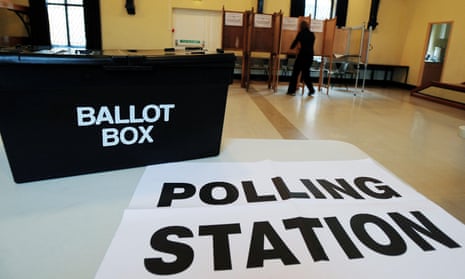We are just one week away from voting for eight new mayors across England. Voters will head to the polls to elect six new metro mayors – in Greater Manchester, Liverpool, the West Midlands, Tees Valley, the West of England, and Cambridge and Peterborough – along with two directly-elected mayors, in Doncaster and North Tyneside. Charities do not understand just how profoundly this is going to affect them.
These city-regions have all been promised significant additional investment from central government, on the condition that the new mayors work across local authority boundaries to create a series of combined authorities.
When the first directly elected mayor was introduced in London on this basis in 2000, local councils quickly found that it smashed the status quo.
To give just one example, rough sleeping in London is now dealt with on a citywide basis. Instead of 33 borough councils each offering their own rough sleeper provision, there are now three homeless hubs in London that provide services across the whole city. And it has worked – rough sleeping in London remained broadly flat last year, while across the rest of the country it increased by an average of 16%. The point is these homeless hubs might be paid for by local councils, but they are commissioned by the mayor.
The result for YMCA has been a dramatic decline in the number of associations operating in London. Fifteen years ago there were 13. Today there are five – and one of those is undergoing a strategic review. It seems likely that in future there may only be one. It’s not that these individual YMCAs are failing; it’s that there isn’t a long-term future in solely local operations. The mayor isn’t interested.
The pressures on council budgets will drive similar arrangements across the combined authorities about to elect their own new mayors. And that means existing relationships between charities and councils may no longer be as important as they once were. The experience in London has been that the mayor wants pan-London solutions to problems, and won’t engage with charities that can’t deliver them. If charities want to be in a position to help, they now need to think in terms of the whole city-region, not just bits of it.
Trustees of smaller, local charities are going to have to take a long hard look at themselves and see whether they can retain their local focus while working in partnership, or as part of a consortium, across a much broader area. If they don’t, they risk being cut out of the picture altogether by large national charities.
There is a second consequence of these elections that no-one is talking about. Devolution has revolutionised the relationship between government and the third sector in Scotland, Wales and London. The experience there has been that devolution is not an exercise in de-centralisation; it simply moves where the centre is. As devolved administrations take power from Westminster and from local town halls, control has shifted to Holyrood, the Welsh Assembly and City Hall. It seems likely that the same will happen in the new combined authorities.
That means charities must come together to start thinking about how they can make a co-ordinated offer to the new mayors. Here in the West Midlands, the five YMCAs have already joined forces to draw up a single “YMCA manifesto for the mayoral election”, with a clear set of objectives we all agree we want the mayor to achieve and a united voice on what we hope to be able to offer.
All the evidence points towards mayors becoming the new centres of power in the English regions. Charities need to prepare for that reality if they want to survive.
Alan Fraser is chief executive of YMCA Birmingham
Talk to us on Twitter via @Gdnvoluntary and join our community for your free Guardian Voluntary Sector newsletter, with analysis and opinion sent direct to you on the first and third Thursdays of the month.

Comments (…)
Sign in or create your Guardian account to join the discussion